You only have so much money to spend. When you’re trying to choose a new product, you want to make sure you select the right one. How do you decide which one to go with?
For most people, the answer involves social proof.
What is Social Proof?
Social proof is the idea that people’s decisions are likely to be swayed by evidence of what other people think. If you’re hesitant to consider trying a new brand right up until a friend raves about how much they love their products, that’s an example of social proof in action.
And it happens a lot. A Convince and Convert survey found that 83% of people are more likely to make a purchase if they hear it recommended by a friend or family member.
A lot of social proof happens outside of a brand’s purview. Friends recommending products and businesses to each other isn’t something a brand has much control over. But some forms of social proof are more within your control, and those can be put to good use convincing website visitors to choose your business.
8 Ways to Add Social Proof to Your Website
Any business with happy customers has the potential to start using social proof on your website. Here are eight forms that can potentially take.
1. Customer testimonials
As intent as you are on always being honest, when customers see statements you’ve made about your own business and products, they know they’re coming from a biased source. To really convince them that you’re awesome, they need to hear it from someone like them.
That’s why customer testimonials are so powerful. Your customers don’t profit from promoting your products, so when they say something positive, there’s every reason for your website visitors to believe it’s genuine. Plus, they can speak to the particulars about your product that they find valuable—which are likely to be aspects many of your visitors can relate to.
If you feel weird about reaching out to your customers for a quote, don’t! If you have customers that genuinely like your product, you’ll be surprised how willing many will be to submit a line about their experience. It will make your testimonials more convincing if you can add a face to the name, like Freshbooks does. It makes the person behind the quote that much more human and relatable to the visitor.
2. Case studies
A case study is like a testimonial times ten. Essentially, it’s the same idea, except longer and more in depth. Case studies tell the story of how your business helped a particular customer.
A good case study is based on an interview (or potentially more than one) with a customer you’ve worked with, where they share their experience with your brand. They give you the chance to describe in detail what problems you helped the customer solve, and what they liked about working with you or using your product.
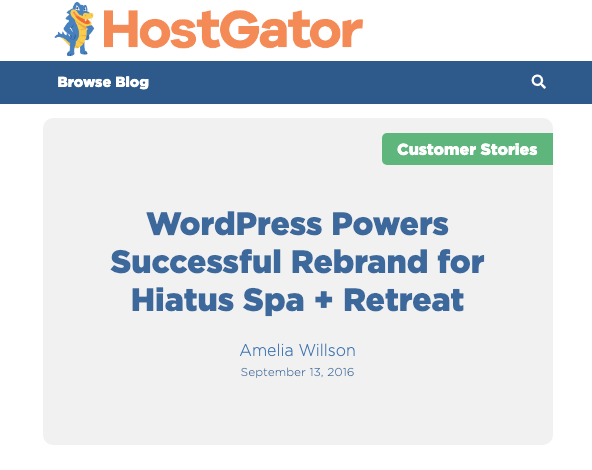
For potential customers, reading a case study about the experience of someone with similar needs or preferences helps them better picture themselves in the role of customer. In many cases—especially for more high-priced items that people spend more time in the research phase for—it can help them make the decision to buy.
3. Customer social shares
Pre-internet, word of mouth recommendations would mostly happen between people who knew each other in person. But now that people spend a lot of time on social sites and are connected with hundreds (or even thousands) of people around the world via their social media feeds, those online connections now serve a similar role when it comes to brand recommendations.
You can’t control what people say about you on social media. But you can pay attention to brand mentions and use them in your own marketing. When someone raves about your product on social media, that’s a testimonial you can embed on your website for social proof.
If people share pictures of themselves wearing your clothes on social media with a branded hashtag, you can add a gallery of those images to your site so visitors can see your products in action.
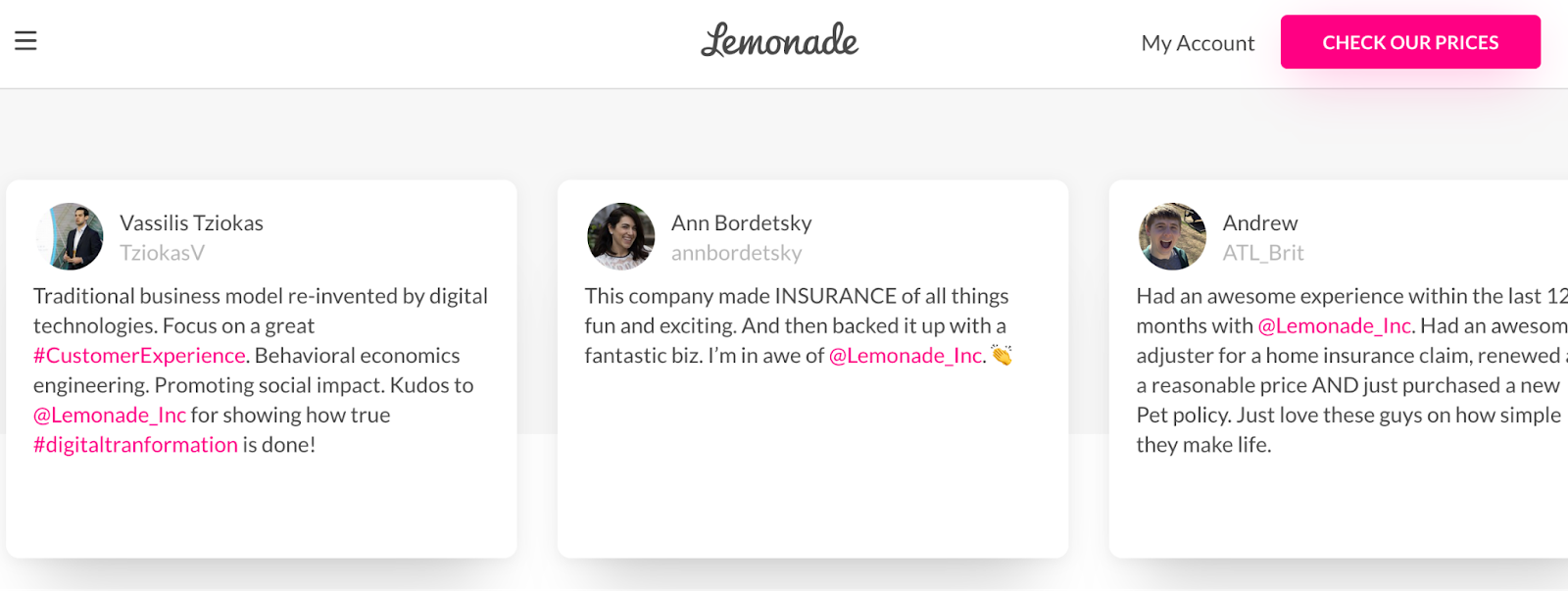
4. Numbers
When making a decision, many people are inclined to lean on the wisdom of others. If you know a certain restaurant in town always requires reservations, that tells you a lot of people like it and there’s a good chance you will too. People figure that if thousands of people before them have weighed their options and made a choice, they must have done so for good reason.
You can use that! Put the number of customers you have now on your website, and it will make many of your website visitors feel more confident in choosing to become one of their number.
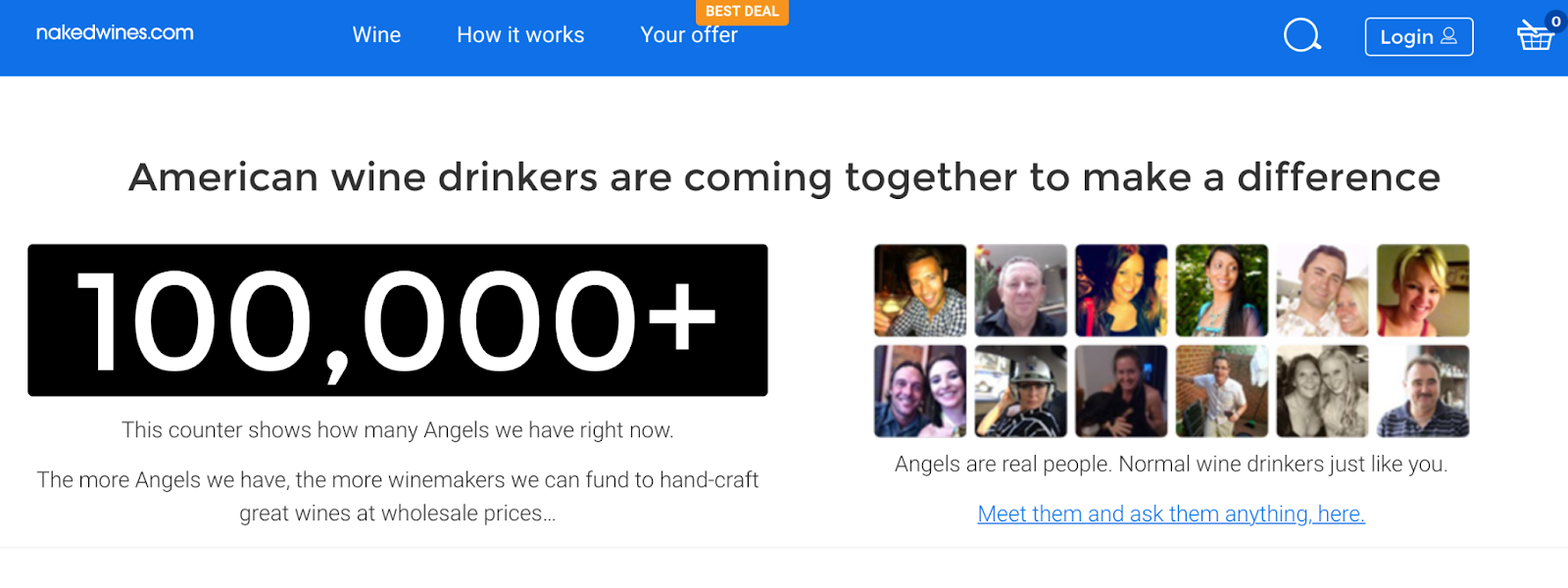
You can also use this for other actions you want visitors to take. If you want people to sign up for your newsletter, telling them how many people already subscribe can be convincing. To encourage them to share social posts, using a social share plugin that shows how many people have already shared a piece can help.
5. Customer reviews
When people do research into a product before deciding whether or not to buy, reviews play a big role in the process.
In a 2019 Bizrate report, 92% of respondents said they read at least one review before making a purchase. Many of them will seek out reviews on websites other than yours, like Yelp or Google. But you can make this part of the research process a lot easier for them (and provide social proof at the same time) by enabling reviews directly on your website.
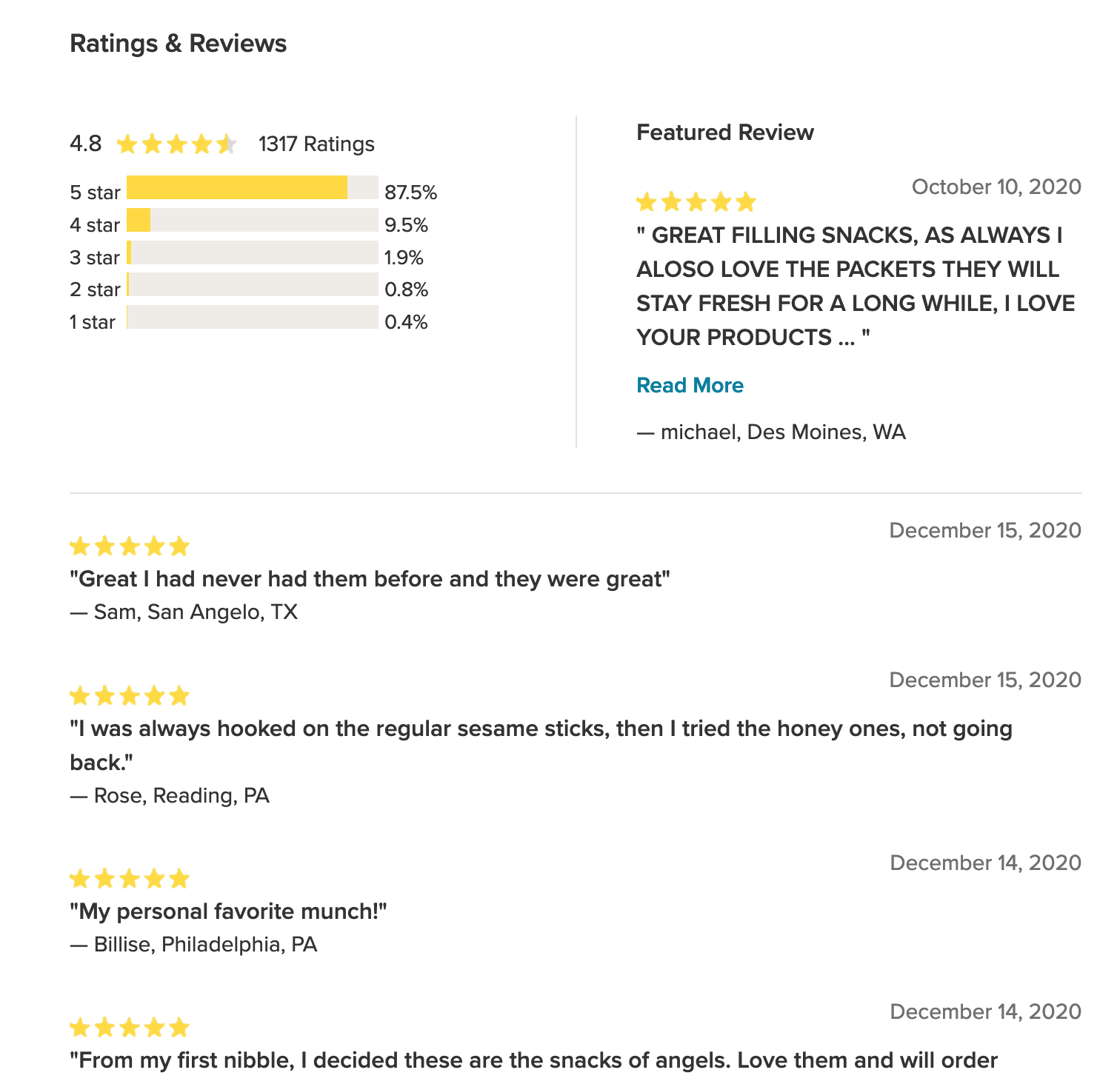
Reviews not only do the work of providing proof that other people have bought and liked your products, often they can answer questions your website visitors have directly. Someone wondering how an outfit will fit on someone of a certain weight and height may get their answer in the reviews section. Someone considering whether a snack option might be too sweet or spicy can see what other customers have to say about it in the reviews.
6. Third-party reviews
Customer reviews can be powerful, but often customers are working from limited information. They probably haven’t tried all the main competitors to a product and weighed them against each other. Visitors who want that kind of detail in their product research will seek it by checking out third-party review sites like Wirecutter.
This is another channel you don’t have much control over. Whether a review site says your product is awesome or not is up to their journalists and researchers. But if you do get accolades from sites like this, you can use them on your website.
You can pull notable quotes out from the reviews to feature on your website, or add a line to your site that says “Recommended by <third-party site>.” Customers that appreciate knowing an expert has weighed in will be that much more likely to be swayed by evidence that a professional reviewer liked your products.
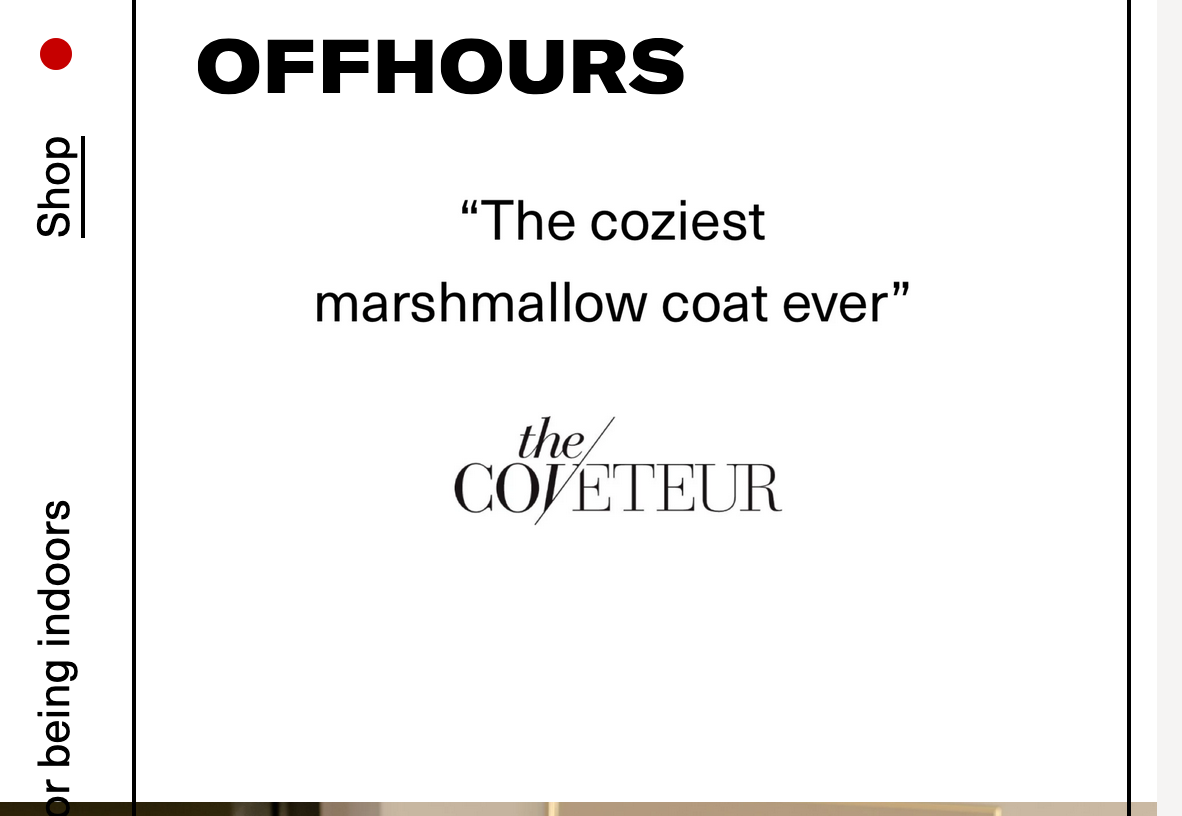
7. Influencer endorsements
If you see someone share valuable insights on their blog or social media feed regularly enough that they’ve gained your trust, you’ll probably listen when they recommend a product they loved. Influencer marketing is based on the idea that people with a devoted following can influence what products their audience will consider. If you can partner with someone your target audience follows and trusts, their endorsement could drive more people to try out your products.
Big brands often do this with big celebrities. But you’re probably thinking “how on earth would my tiny business get someone famous to care about my products?” The good news is that the internet has democratized influencer marketing. You don’t need to convince Chris Evans to mention you, you can identify and work with micro influencers.
Find people in your industry or niche who have a following. They don’t have to be world famous, they just have to have some sway with the people you most want to reach. While these influencers will have a smaller audience, in some cases they’ll be a more devoted one. Think about how much closer you feel to your favorite podcast host than that massive movie star you like. Whose recommendation are you likely to care more about?
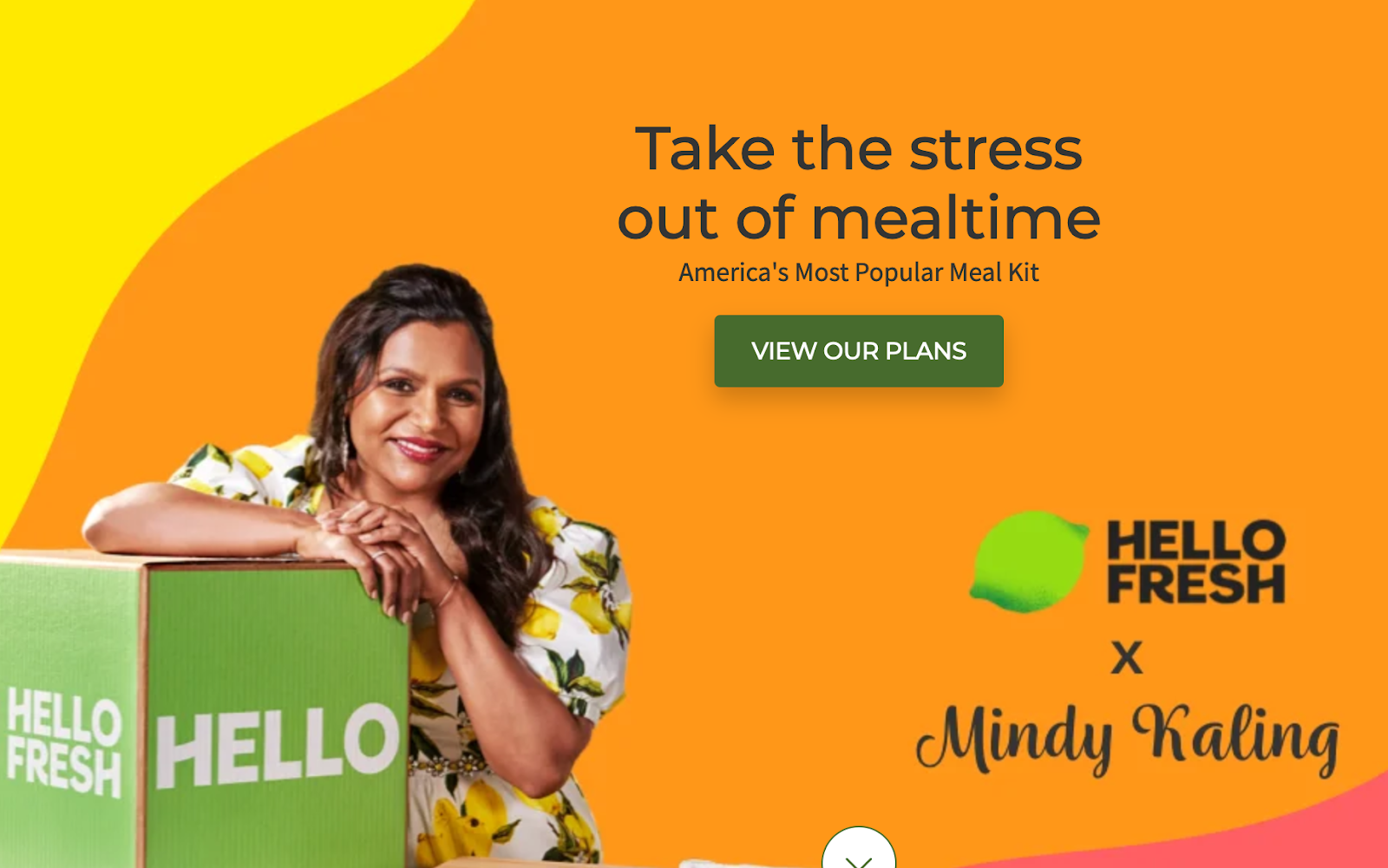
8. Third-party awards
If your products have won an award, this is one final social proof tactic you can use on your website. Of course, this one only works if you’ve already been given a relevant, legitimate award. In case it needs to be said: do not go after scammy awards that ask you to pay for a win, or make an award up. (We know you know better and didn’t need to hear that, but someone somewhere probably did).
But if a genuine award in your industry has honored you, it’s OK to call that out on your website. It gives your visitors one more bit of proof that the claims you make about your product are legit, and they don’t just have to take your word for it.
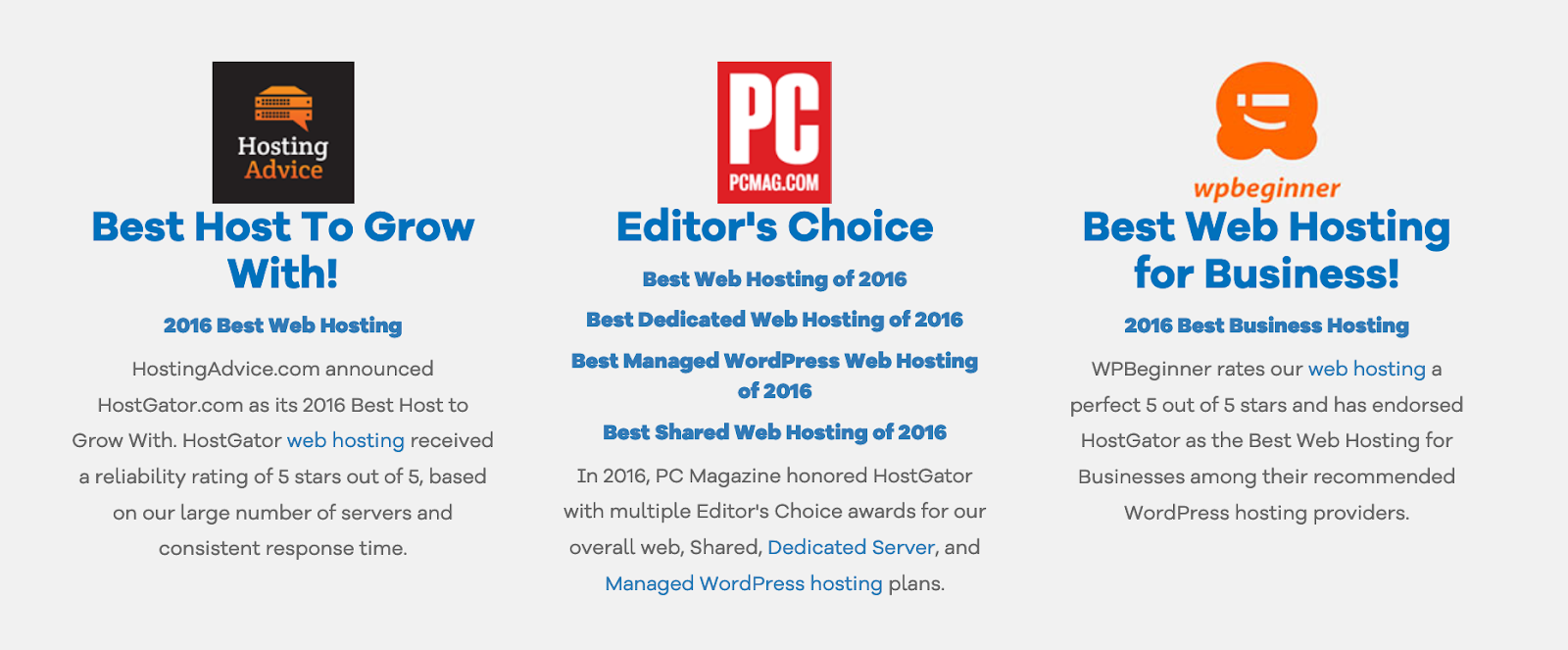
Word of Mouth Matters
The words you choose to talk about your product obviously matter. But nothing you say will hold quite the same amount of weight as what other people say about you. The things your customers, industry publications, and influencers say about your business have power. And you can put that power to use by adding different types of social proof to your website.




![Yes, B2B Websites Can Use Personalization Too [Here’s How]](https://mdvirtue.com/wp-content/uploads/2022/02/Yes-B2B-Websites-Can-Use-Personalization-Too-Heres-How-400x250.jpeg)

0 Comments